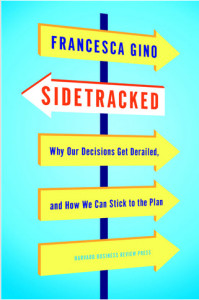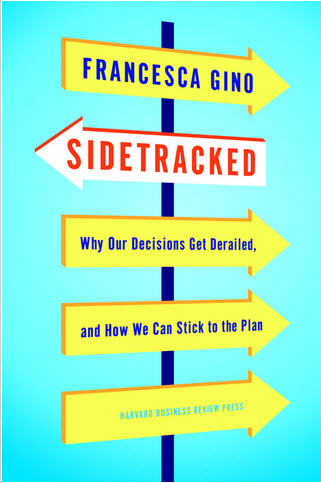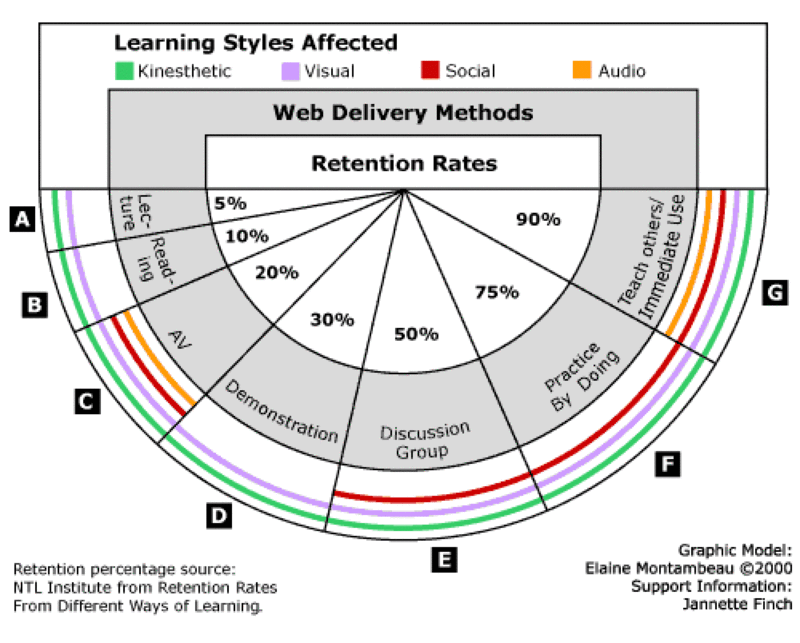 Nýlega kom út bókin „Sidetracked“ eftir Francescu Gino prófessor hjá Harvard Business School. Hún hefur árum saman verið að rannsaka ýmsa sálfræðilega hegðun okkar. Bókin hennar er mjög áhugaverð fyrir viðskiptalífið því að þar er hún að skoða hversvegna við keyrum út af sporinu sem við höfum markað okkur og svo hvað getum við gert til þess að halda okkur á því. Hér fyrir neðan eru á ensku 9 megin atriðin úr bókinni.
Nýlega kom út bókin „Sidetracked“ eftir Francescu Gino prófessor hjá Harvard Business School. Hún hefur árum saman verið að rannsaka ýmsa sálfræðilega hegðun okkar. Bókin hennar er mjög áhugaverð fyrir viðskiptalífið því að þar er hún að skoða hversvegna við keyrum út af sporinu sem við höfum markað okkur og svo hvað getum við gert til þess að halda okkur á því. Hér fyrir neðan eru á ensku 9 megin atriðin úr bókinni.
- Raise your awareness. Because our views of how capable and competent we are as individuals are often overly positive, we rely too much on our own information and ignore the valuable opinions that others have to offer. By raising your awareness, you can keep your self-views in check and recognize when they may be taking you off track.
- Take your emotional temperature. Even when triggered by situations or events unrelated to the decision at hand, emotions can derail us. They can lead to inaccurate analyses of the information at hand, thus moving us away from our plan of producing correct analyses. By taking your emotional temperature, you can examine what your emotions are telling you and whether they are clouding your decisions.
- Zoom out. We often focus too narrowly on the decision at hand and our own views about it. As a result, we fail to see the bigger picture, including other people’s roles. By zooming out, you can include more relevant information in your decision-making process so that you can avoid derailment.
- Take the other party’s point of view. There is always another side to a story: the other person’s viewpoint. Failing to recognize the potential for a different perspective can prevent us from sticking to the plan. By taking the other side’s point of view, you can analyze the decision you face from another person’s perspective.
- Question your bonds. As social beings, we easily form connections with others based on subtle factors, such as sharing the same birthday. These connections may expand our networks, but they can also derail our decisions. By questioning your bonds, you can carefully reflect on your ties and similarities to those around you and consider whether these bonds are affecting your choices for the worse.
- Check your reference points. The people around us provide natural reference points to help us understand where we stand across a variety of dimensions, from attractiveness to performance. How we measure up in these comparisons matters and can easily result in derailment. By checking your reference points, you can uncover the real motives behind your decisions and re-adjust accordingly.
- Consider the source. We look at the effort others put into their decisions to evaluate the quality of those decisions. When evaluating the quality of decisions, we examine their outcomes. Finally, we also discount how situational factors led to a given outcome. These biases lead us to judge others inaccurately. By questioning your sources, you can carefully examine the information surrounding your decisions.
- Investigate and question the frame. We can view the same glass as half empty or half full. Similarly, we can frame our offers and messages to others in different ways. Simple changes in framing can have significant effects on our motivation to act. By investigating the frame, you can ask questions about the way tasks, rewards, and choices are structured and learn how to avoid decisions being derailed.
- Make your standards shine. Our plans commonly reflect our desire to be moral individuals and to listen to our moral compass. Yet, from the amount of lighting in a room to the amount of resources at our disposal, subtle forces can send us off course. By making your standards shine, you can remind yourself of the importance of keeping your standards salient and become more likely to stick with them.





